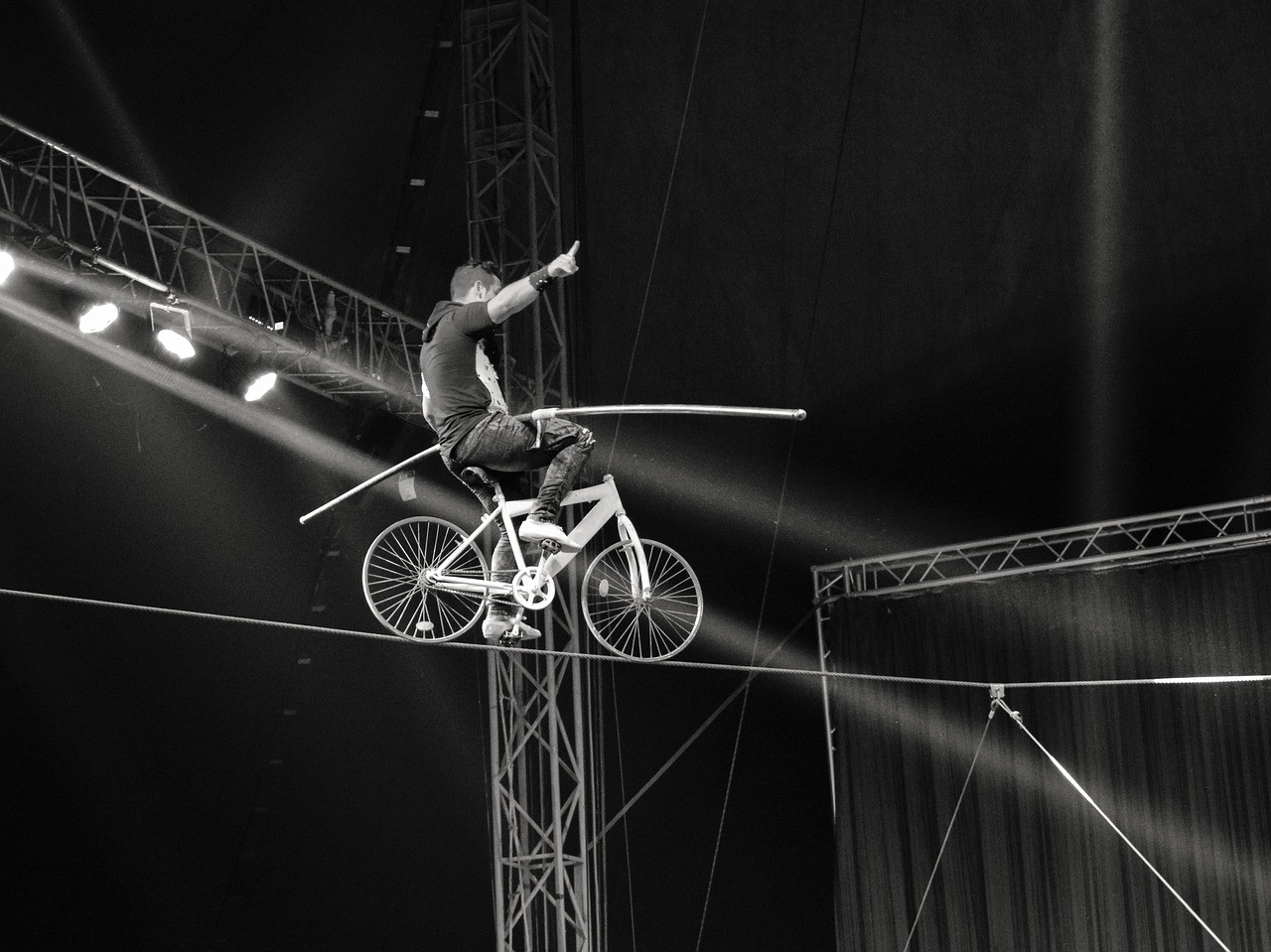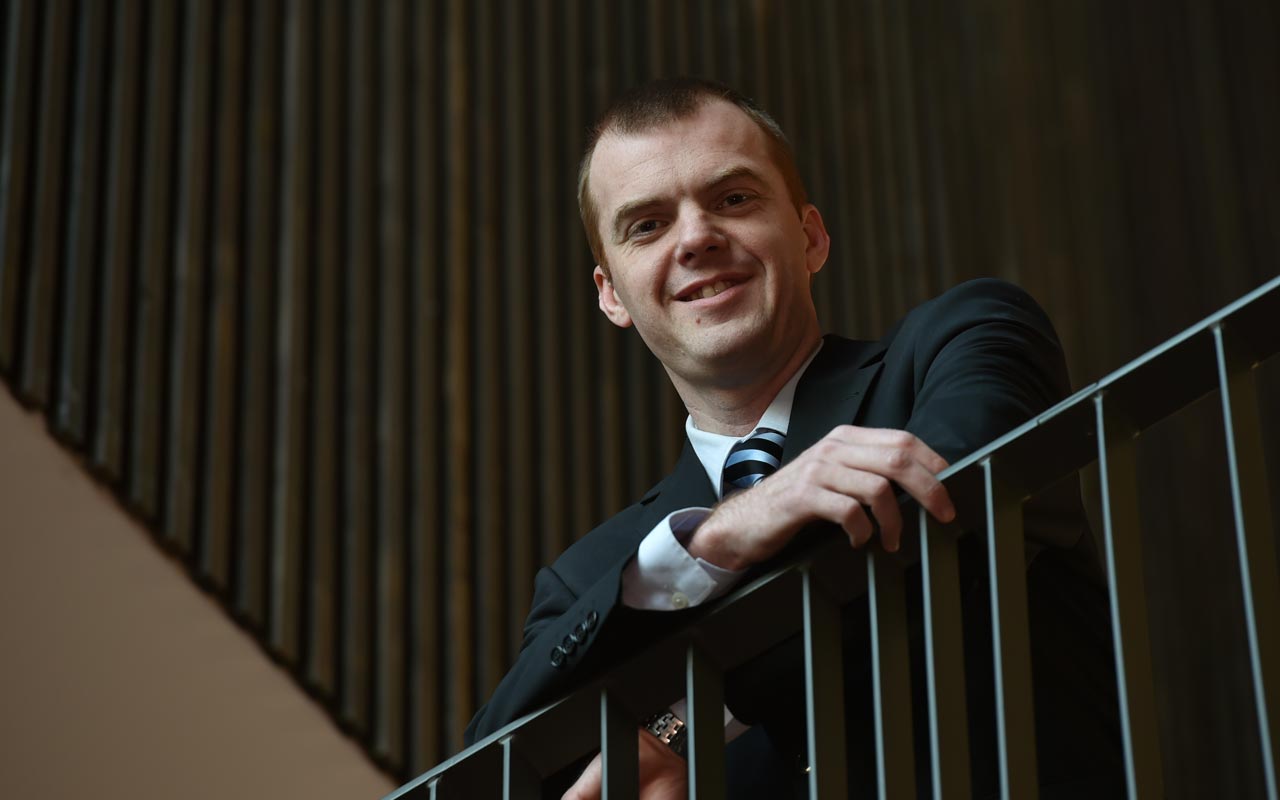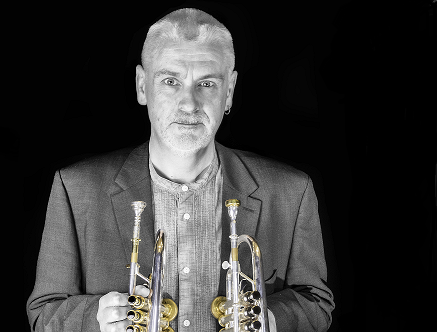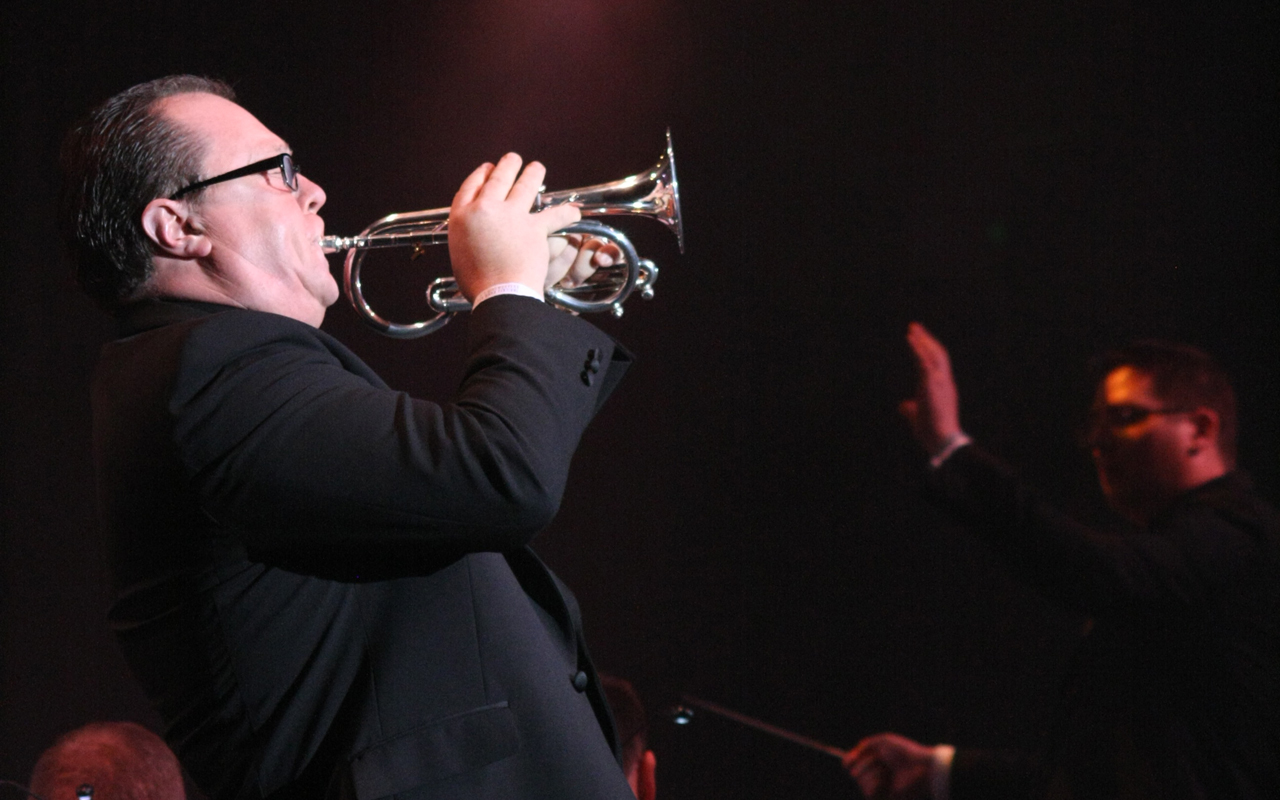
Are the days high wire antics coming to an end?
The stereotypical musical image of the soprano player has changed. It has had to.
Brass band romantics may still believe that a Byronesque attitude to life is essential to succeed in playing the instrument at the very highest level, but the modern day reality is starting to become completely different: The very best are mad, bad and dangerous to know no more.
You simply won’t last long if you are nowadays.
Adapt technique
As the writing for the soprano has changed over the last 20 years, so has the need for the elite players to significantly adapt their technique and musical style to meet the demands of the new challenges ahead: At first uber-confident and emboldened, but now, increasingly becoming more considered and cultured too.
To succeed in the future they must become multi-dimensional players on an instrument that for far too long has been considered as having only an on and off switch of effectiveness. Stylistic nuance, texture and colour are becoming the new markers of excellence; dynamic excess and ear-drum splitting stratospheric range, less so.
Stylistic nuance, texture and colour are becoming the new markers of excellence; dynamic excess and ear-drum splitting stratospheric range, less so.
The change has been long overdue, and is due in no small part to a subtle but significant change to the way more enlightened composers are now willing to write for the instrument.
As a result there are welcome signs that the bankrupt compositional thinking that has used the soprano merely as a means of providing ‘shock and awe’ seem at last to be on the wane - although it’s not been completely eradicated.
The fad for imposing unprecedented physical demands, but very few musical ones, on all but the very best players could well be passing its sell by date - replaced by a more considered appreciation of the instrument’s inherent abilities.
Dog whistle pyrotechnics
Players and audiences have certainly grown tired of test-piece blockbusters designed to dazzle the senses, but which invariably reveal themselves to be packed with dog-whistle soprano pyrotechnics that leave a blunt force trauma on the mind the equivalent of being repeatedly hit across the head with a shovel.
Boundaries have certainly been pushed, and expectations increased; although at times the soprano player has become nothing more than a high-wire acrobat; the audience baited by the prospect of calamity.
Boundaries have certainly been pushed, and expectations increased; although at times the soprano player has become nothing more than a high-wire acrobat; the audience baited by the prospect of calamity.
That said, there is still a thrill like no other when you hear an exceptional player on a contest platform performing at the controlled limits of their abilities; one who knows how to mix vibrancy and verve with delicacy and decorum; adding light as well as textural shade to the ensemble sound.
Feral banality
It’s therefore been one of the great reoccurring disappointments almost in every corner of the contesting globe to hear players so gormlessly play up to the romantic stereotype; feral banality destroying performances, especially when a modicum of musical intelligence would have reaped dividends (although a great deal of blame must be aimed at the conductors who allow it).

Thierry Deleruyelle's 'Fraternity' certainly showed a more considered approach to test-piece soprano writing
It’s surely no coincidence that the composers who return repeatedly to write successful major test-pieces have a respectful, almost historical understanding of the instrument’s strengths as well as weaknesses: No coincidence either that the most successful bands have soprano players who have worked that out for themselves too.
Pushed boundaries
The likes of Edward Gregson, Philip Sparke, Peter Graham and Philip Wilby have all pushed the instrument’s boundaries at some point in time, whilst later this year Howard Snell’s ‘Gallery’ provides a perfect example of how to test a soprano player’s ultimate contest platform mettle through simple lyricism.
later this year Howard Snell’s ‘Gallery’ provides a perfect example of how to test a soprano player’s ultimate contest platform mettle through simple lyricism.
Others composers have taken a slightly different approach (and at times very successfully) over the past decade or more – with the writing based more on their orchestral knowledge of the technical boundaries of the Eb/piccolo trumpet. As a result the tessitura has been different; more strident and technical, but no less appealing.
Not mourned
The best have combined elements of both - exploring technique without recourse to crassness, revisiting lyricism with contemporary stylistic nuance. Thierry Deleruyelle’s forthcoming ‘Fraternity’ is a case in point; a work enhanced by some considered editorship before it was first used at the 2016 European Championships.
In contrast, there have been many more that will not be mourned by a lack of a reprise.

A perfomer to listen to in more ways than one: Cory sop star Steve Stewart
Cory’s Steve Stewart pin-pointed the future challenges top level soprano players will face when speaking to 4BR at the recent European Championships in Ostend. There he talked about the need to back up the basics of a rock-solid technique with an in-depth appreciation of a wide variety of different musical styles and genres.
Bridged eras
Having bridged eras that encompassed Eric Ball and Gilbert Vinter, through Gregson, Sparke and Graham to Torstein Aagaard-Nilsen and Oliver Waespi and the like, he knows what he’s on about. The ability to play the very high stuff is now a basic requirement - but it is the way in which you deliver it that now counts more than ever.
Warmth, elegance and tonality was in danger of being lost forever.
The ability to play the very high stuff is now a basic requirement - but it is the way in which you deliver it that now counts more than ever.
That understanding he said came from an open musical mind; one ready and willing to learn something new, regardless of experience; that appreciates the importance of texture and blend, the composer’s intentions, and the ability to colour either with a subtle shading or a vibrant splash as well as the draw the attention in the spotlight solo passages and cadenzas.
The best new brass band music has forced the new approach he felt. It was learning to perform with a very different type of self-confidence; one not governed by technique but by musicality.
Hearing the best
He is not alone of course (and if you hear the finest players in the world his opinion is backed by substantial evidence - from Norway to New Zealand) - but it does take time for the ‘trickle-down’ effect to be heard on the second and third tiers of Championship Section contesting, let alone in the First Section and below.
But if it’s something which a player of his stature sees as the way forward, then surely others (and especially potential composers for the instrument) should at least take note.

The art of lyrical soprano playing is still appreciated when played by the likes of Paul Richards of Flowers
By speaking with many of the world’s top players at major events, they now see the soprano starting to find its musical niche for the modern banding age - one that they can also help enhance by exploring new repertoire by working with alongside composers who now fully appreciate the unique characteristics of an instrument like no other.
New horizons
They are the generation already benefitting from better tuition and a broader scope of musical influences; flexible, explorative, confident, cultured and self-aware. As a result, multi-dimensional new horizons beckon – not just the one that is simply focussed on the stratosphere.
And helped by composers armed with the knowledge of how the instrument can be utilised effectively without recourse to the blunt-edged thoughtlessness of high-pitched technical bombast, they could also become the pioneers of an exciting era of brass band soprano playing for the next generation and beyond.
Iwan Fox













